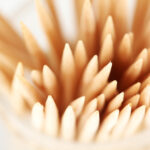Can I Use Mouthwash Instead of Brushing?
The Placerville Dental Group consistently recommends that you brush your teeth for two minutes, twice a day. We also encourage flossing your teeth to get at the areas your toothbrush cannot reach. Another tool we may suggest is mouthwash. Many mouthwash varieties advertise that they kill germs, especially ones that cause bad breath. Several of them contain fluoride to help with strengthening your tooth enamel, in addition to their antibacterial properties.
So, what if you don’t have the option to brush your teeth? What if you lose your toothbrush, or you were short on time and skipped that part of your morning routine? What if you’re out of town and the hotel room doesn’t offer toothbrushes or toothpaste, but they gave you have a small bottle of mouthwash? Wouldn’t a few swishes and spits be enough to kill the germs? Sadly, mouthwash is not a replacement for regular brushing and flossing.
The main cause of tooth decay, and even bad breath, is a thin film of bacteria that always grows in your mouth. Mouthwash may kill the bacteria that makes that film, but it is not designed to remove that sticky bacterial layer. Consider this: would spraying a bunch of treated water over your car be enough to clean all the dirt off? Of course it’s not! You need something to wipe (or brush) away the dirt, reducing its hold on your car’s surface, and then use water to rinse it away.
A Supplement, Not a Replacement
Granted, if you have no other options for one night, then using mouthwash is a better alternative for oral hygiene than tap water. (And gargling with tap water is better than nothing.) But mouthwashes are nowhere near as effective as brushing and flossing, and they are at their best when used afterward. Your toothbrush dislodges the sticky plaque from your teeth, and flossing does the same thing in between your teeth. Your mouthwash rinses the debris away, kills more bacteria, and infuses a temporary flavor in your mouth and freshness on your breath.
One component used in mouthwash is alcohol, which can dry out your mouth. If you sleep with your mouth open, you likely get a pretty dry mouth already. The challenge with a dry mouth is that it can lead to increased bacteria production, which only endangers your teeth and gums. If you use mouthwash too frequently, especially before bed, you might be setting your mouth up for issues later, depending on your personal oral biome.
Use Mouthwash as Intended
Mouthwash definitely has its place in proper oral hygiene. It does kill germs, helps with bacteria, freshens breath, and it can help bolster your tooth enamel with a supply of fluoride or important minerals. Nevertheless, it’s merely a strong support, and never a front-line fighter. Leave that job for your toothbrush, paste, and floss.
Of course, your regular visits to the Placerville Dental Group also supplies you with tremendous dental support. We can also take a look at what mouthwash you use, and help you identify the best one for your circumstances. (Always follow the manufacturer’s directions on how to use their mouthwash.) So, make sure you keep your dental appointments with us! If you don’t have one yet, give us a call or schedule an appointment online. We’re glad to help you see the best way to use mouthwash!



0 Comments